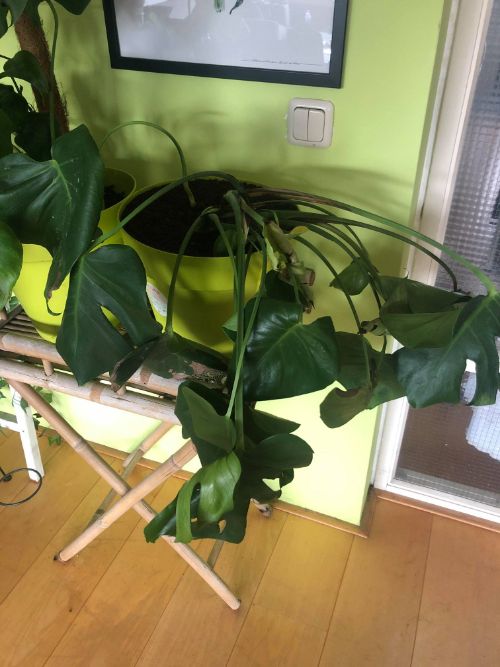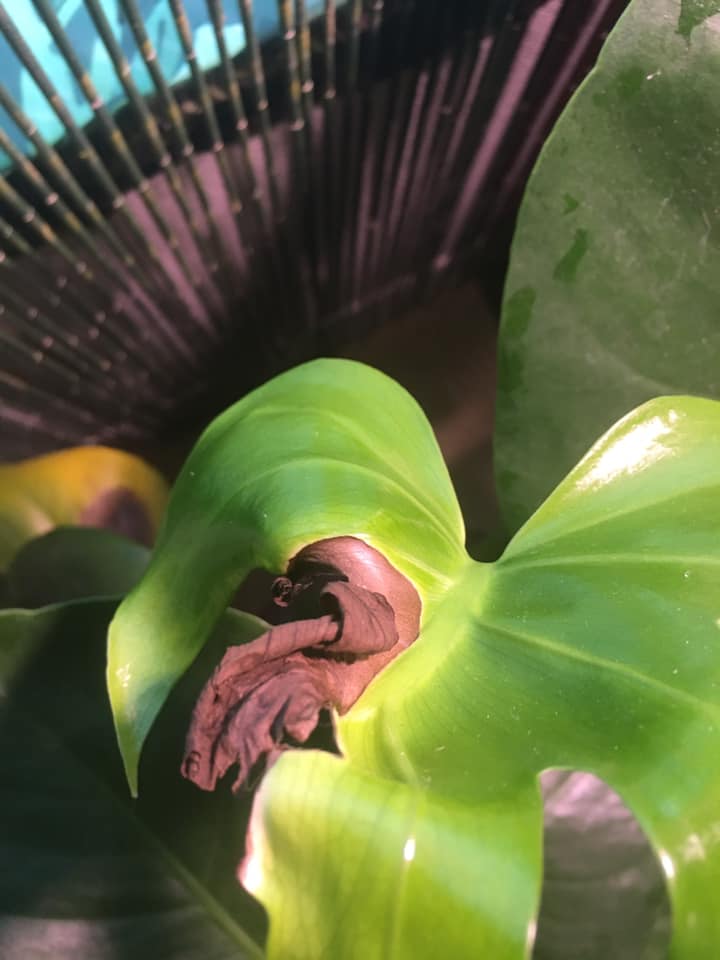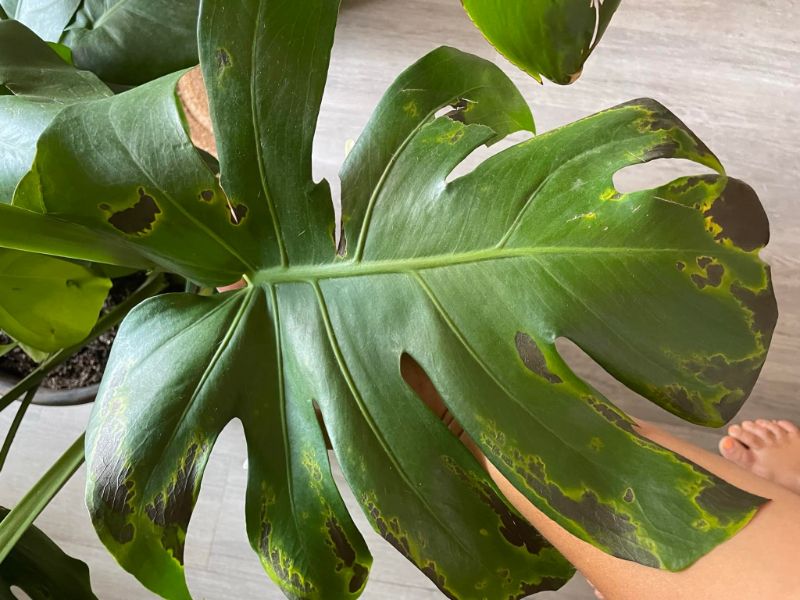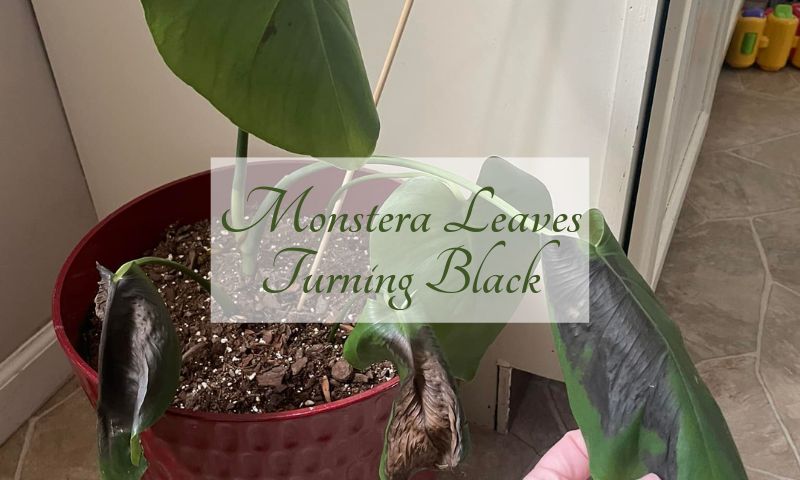Monstera plants are total faves for indoor greenery, all because of their awesome leaves. But if your Monstera leaves turning black, that’s real cause for concern! So, what’s messing with your plant, huh? In this piece, we’ll tackle why Monstera leaves turn black and what you can do to help your plant bounce back!
Cause 1: Overwatering
The most common reason for black Monstera leaves is just plain overwatering. Roots rot when they’re soaking all the time because they can’t breathe right. Usually, the first red flag is when the leaves start to turn black.

Solution:
- Check the moisture level by sticking your finger in the soil up to your knuckle. If the soil is wet or damp, hold off on watering your Monstera.
- Wait until the top inch of soil is dry before you water the plant. You can also use a moisture meter to double-check.
- Make sure your pot can drain well to avoid water pooling.
- If you spot signs of root rot, like a funky smell or soft, mushy roots, it’s time to repot your plant in fresh soil and cut off any sickly roots.
Cause 2: Underwatering
Another common culprit for black Monstera leaves is underwatering. If your plant’s not getting enough water, its leaves will start to droop and darken.
Solution:
- Do the knuckle test in the soil again. If it’s dry, your Monstera needs a drink.
- Don’t just let your plant sit in a puddle of water; water it well and evenly.
- Keep an eye on soil moisture and tweak your watering schedule as needed.
Cause 3: Fungal Infections
Monstera leaves can turn black because of fungal issues too. These usually happen if there’s too much moisture and not enough air moving around.
Solution:
- Put your plant somewhere airy to keep the air circulating.
- Avoid overwatering, and ensure your soil can drain properly.
- If you’ve got a fungus problem, a fungicide can help. Make sure to follow the instructions on the label, though!
Cause 4: Pests
Little buggers like monstera thrips and monstera spider mites can also turn Monstera leaves black. They damage and discolor leaves when they chow down on them.
Solution:
- Keep a close eye on your plant for signs of pests like webbing, tiny bugs, or unusual color changes.
- Get rid of pests with neem oil or insecticidal soap. Again, stick to what the label tells you.
Cause 5: Soil Conditions
The state of your soil can mess with your Monstera’s health too. Lousy or super tight soil can make it tough for roots to grow, leading to stress and, yep, black leaves.

Solution:
- Choose a soil mix that drains well and has lots of organic stuff in it.
- When you’re moving or repotting your Monstera, don’t squash the soil down.
- Make sure your pot drains well to avoid soggy soil.
Cause 6: Extreme Temperature Fluctuations
Your Monstera plant gets stressed out when temperatures go from one extreme to another, and that can cause the leaves to change color. Monsteras are fans of warm weather and don’t do so well if the temps dip below 55°F.

Solution:
- Keep your plant away from drafty spots and don’t put it near windows that get a lot of direct sunlight.
- If it’s getting too cold, you might need a space heater or a grow light to keep your plant warm.
Cause 7: Low Humidity
Monsteras love some good humidity. If it’s too dry, your plant can lose moisture through its leaves, which can make them turn black.
Solution:
- To up the humidity, put a tray of water near your plant or use a humidifier.
- Keep your plant away from air conditioning or heating vents, as they can dry out the air.
Cause 8: Improper Fertilization
Your Monstera leaves might go black if you use too much or too little fertilizer. Not enough fertilizer means your plant could lack nutrients and grow slowly, but too much can damage the roots and discolor the leaves.

Solution:
- Read the instructions on the fertilizer pack so you know you’re using the right amount.
- Use a fertilizer that has a good balance of nitrogen, phosphorus, and potassium.
- Only give your Monstera plant fertilizer during the growing season, usually from spring to summer.
Cause 9: Natural Leaf Aging
Like we said before, Monstera leaves turning black is a natural part of the plant’s growth cycle. As the plant grows, the older leaves will eventually turn black and fall off.
Solution:
- If it’s just the older leaves on your Monstera plant going black, don’t stress. It’s just a normal part of the plant’s life.
By figuring out why your Monstera leaves turning black, you can do what’s necessary to help your plant recover. To keep your Monstera healthy and happy, always check the soil moisture, make sure it’s getting enough light and humidity, and fertilize it right. With the right care, we at FamiPlants think your Monstera will grow beautifully and keep making those awesome, big leaves for years to come.

